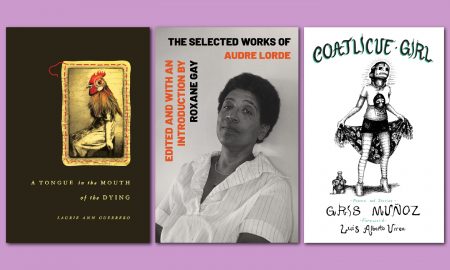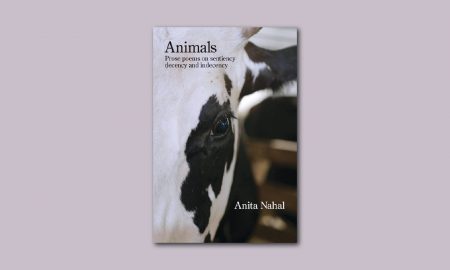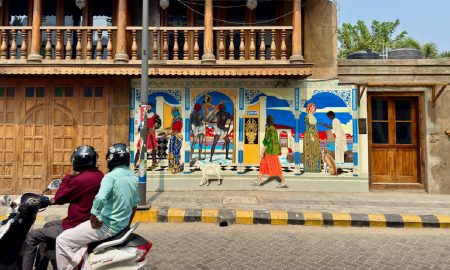Here was Kalista on her deathbed getting things wrong left and right. The name of her daughter’s friend was Glenn. Edward Glenn. From what corner of her addled mind had she come up with Perkins last night? Mistake number one. Number two was more significant. What she had first taken for self-regard turned out to be discrimination, and intelligence. He was brimming with qualities currently in short supply pretty much everywhere.
Up early, the morning after Marie’s let’s-forget-about-death party, Edward noticed Kalista’s door was open. He was fifty, with a slim, muscular build and a prominent bald spot that contributed to the impression of authority that emanated from his person.
“Morning, Kalista.”
“I suppose it is.”
“Would you like to go outside and watch the sun come up?”
Keep it simple. “Yes.”
He knew better than to help her out of bed. He left the room, coming back when she was in the wheelchair with a cotton blanket on her lap. He wheeled her through the house and out onto the deck, where the freshness of the June morning took her breath away. Already the Berkshires, the Commonwealth of Massachusetts, the world that held them up, were getting used to life without her. That aggravating crow rocking in the tip of the big pine. It, too. The bird was forgetting what it used to know of her.
“Are you chilly?” Edward said.
“No.”
“Would you like coffee?”
“Coffee would be lovely.”
While he was in the kitchen, she watched mist curl on the surface of the lake. Near the dock, a fish jumped. Richard, who used to be Kalista’s husband, had chosen the site brilliantly. The properties around the lake were large enough, their owners were spared the eyesore of overdevelopment.
Edward’s coffee, made in the French press while Marie went on sleeping, was too good for words, but he had the eyes to see how she savored it.
“I’m known for asking impertinent questions,” he warned her.
“Meaning you would like to know about my cancer.”
He nodded, neither sorry nor shy.
“Bad and getting worse. Hopeless, to be precise. I went through the treatments. For a while they thought it might be in remission, but it was only resting. I decided what I wanted more than anything was a few good weeks.”
“Not to be a sick person,” he said.
“That’s part of it.”
“What’s the rest?”
“A particular kind of thinking that only comes when it comes. I thought it might come more easily out here.”
“And does it?”
She exercised her right not to answer the question. It came with the corollary right to change the subject.
“I wish I could shield Marie.”
“From watching you get worse.”
“No one ought to see it. Especially not my child.”
“My parents divorced. I was about the age Marie was when it happened in your family.”
“Are you reminding me how difficult divorce is on the children?”
“I would not presume to remind you of anything, Kalista.”
“Then what?”
“I think I’m going to disappoint your daughter. We’re not the match we thought we might be.”
“I see.”
Marie was formidable. Curious, voracious, in need of unceasing reassurance. Emotional turbulence was her element. Last stands and last chances, loyalty oaths and rivers of scalding tears. None of that was likely to change; she was fifty-one. But her mother’s diagnosis brought out something fine in her. I’ll come stay with you, she had announced. You’ll want to sleep in your own bed. She took a leave of absence from her job and showed up at the lake house with a basketful of daisies. Dank corners of disused rooms suddenly smelled of lemon.
“So, you’ll be leaving,” Kalista said. “I’m sorry for Marie.”
His shrug did not suggest indifference. What he felt was finer than that and need not be put into words.
“I’m sorry for myself, too,” Kalista told him.
“Why is that?”
“I was hoping for a date.”
“Someone to go with you.”
“They say we die alone. I’m sure it’s true. But I had hopes of company, right up to death’s doorstep. You fit the bill.”
“Marie is here.”
“We’re too close. Mother and daughter. You understand.”
“Why me?”
“Consider the vast universe of things that can be said.”
“All right.”
“The secret is knowing which ones not to say. Some people have the knack. It makes the things a person does say count.”
Proving her point, he reached for her cup. “I’ll make more coffee.” He went away with the purposeful quiet of a skilled waiter.
It was good to have a few solo moments outdoors. The smell of the water was familiar in the way that some dreams were; you tumbled forward into the past. Times like this would be scarce, going forward. The fog was taking its own sweet time, lifting.
She closed her eyes, and Matibay City came back. The Philippines always came back. The town was full of Filipino soldiers, deployed to discourage terrorists. More of them in Jeeps at the entrance to the mine. And striding tall among them, Richard, undaunted in high black boots, barely sweating in the flattening wet heat of Mindanao. This is our home. Here is our work. We will not be driven out. Although eventually he did send Kalista and Marie away. It was the prudent thing to do after the guerrillas mentioned Richard by name in their radio broadcasts. He was imperialism’s agent. Never mind how thoughtfully he treated his employees, or how generous he was as boss and human being. In the guerrillas’ world-historical struggle, the American mine manager was a bug. Bugs were for squashing.
God, there was not a man on the planet as commanding, as jaunty, as high-spirited, as her Richard.
For a month, Kalista and her young daughter stayed in a comfortable Manila hotel, waiting for the troops to do their job, killing the terrorists or beating them back into the jungle. Which did not happen.
There was no advantage to illness, it occurred to her now. There was no improved perspective, no revaluing of one’s fateful decisions. Pain was only pain. But the closeness of death did have one liberating effect. Anything having to do with ‘should’ evaporated. Is. Only is mattered. Is and was. The two kept blurring into each other.
Richard made the trip to Manila to tell Kalista face to face that she and Marie had better go home to the States. What had been a nuisance – bombastic rhetoric, a running low fever of aggravations – was becoming a serious siege of the mine. Matibay City was no longer safe. Richard was staying behind. The company had beefed up security, and the government promised more troops. If the guerrillas drove him out, they would win. Meaning, Kalista pointed out, you would lose. Her husband was no good at losing.
Mrs. Rivera will take care of you and Marie, he assured Kalista. Leave the logistics to her. Mrs. Rivera was a premature widow of forty with pale Spanish skin and an air of puzzled resignation. Her husband, an engineer, had been killed in an accident at Richard’s mine. Later, she was given a position of minimal responsibility at the Manila headquarters. Many extinguished years later, it still hurt. Because Kalista knew. There was no evidence. No whiff of impropriety spoiled the office air. But she knew. Richard had taken Guadalupe Rivera as his lover. The shame of being delivered into exile by her husband’s mistress still burned.
In her humiliation, Kalista had taken Marie to the lake house, which they’d built in the Berkshires when Richard was named mine manager and given a share of company profits. It was their moment of triumph as a winning duo. A month later Richard showed up, and they had it out.
A terrible night. The gods launched bolt after bolt of lightning at them, exteriorizing their contempt for the paltry human drama of man and betrayed wife. They’d sent Marie to a friend’s to clear the house for strife. Kalista and Richard sat in the great room facing the sliding glass doors that led out to this same deck where she sat now.
Again and again the black sky over the lake cringed at the jagged bright assault. I might forgive you, she told him. I could never forgive myself for having done so. Forgiveness, it turned out over time, was beside the point. But that night of flaming absolutes, understanding that she would not relent, noble Richard wept. He had broken off the affair with Mrs. Rivera but knew better than try to explain how it came about in the first place.
Edward was back with a second cup of coffee. He hadn’t even left, and already she was missing him.
***
Richard had become the hale old man Kalista expected him to be. A shock to see the thin gray thatch on his head, yes. But he looked fit and capable, the man to whom people turned in a crisis. Very likely, he exercised. She was sitting on the front porch with Marie, enjoying a pain-free hour, when he drove up in his silver BMW coupé. The man who stepped out from behind the wheel was still jaunty, in a manner appropriate to his age.
Edward was gone. Kalista believed that he had let Marie down gently. Marie cried in her room for an hour, but only an hour. She came out with red eyes and a smile and cooked omelets for their lunch. Adding peppers and mushrooms, she hummed. Your mother is dying, she was telling herself. Keep it together.
Watching her daughter work, Kalista said impulsively, “I think you should call your father.”
She did not regret the decision, but it had the perverse effect of making her think about Guy. The world’s most patient man. After the divorce, Kalista had gone to Greenfield to teach high-school biology. Guy taught the same subject at Amherst. His great virtue and defect was in not allowing Kalista’s ongoing pain over Richard to spoil his love for her. He hoped with time she would love him with something like the fervor he felt for her. He was attentive to Marie, accepting her resentment as a natural byproduct of her experience.
Kalista married him without reserve, giving him what she found in herself to give. Guy wore cardigans, and enjoyed string quartets, and only published enough to allow him to keep doing what he loved, which was revealing to undergraduates the marvels of the world they were getting to know. Even his death was an act of consideration. Kalista had stopped teaching by then. While she toured Tuscany with a friend, Guy went out to the back yard to rake leaves. Autumn in Massachusetts. Looking over the fence, a neighbor saw his body stretched across the leaf pile he had been building. Kalista came home to find the necessary arrangements taken care of.
Now Richard, coming up the porch steps, made sure to hug and kiss Marie first. She clung to him. When she finally let him go, Kalista stood, although the effort cost her, and put out a hand for him to shake. He took it. His felt warm.
“Kalista.”
“Please,” she said. “Expressions of regret, or sympathy, or anything remotely maudlin are verboten on the property.”
He nodded. “It’s a good policy.”
Marie did her best not to allow her pleasure to show, but it dripped from her pores. After all these years, the family was together again. She was giddy, making ginger beef with Japanese vegetables for their dinner, bringing her father a glass and Kalista a taste of the Bordeaux he had brought with him. After they ate, she excused herself.
“I’m meeting Edward for a drink, and we might catch a movie afterward.”
It was a lie, but gracefully carried off. Soon enough Kalista and Richard had the place to themselves. They sat in the great room facing the dark lake. How could they not think of their showdown, the night of excruciating lightning, so long ago it was as close as yesterday? He wanted her to talk, he wanted to listen. But she felt listless and feared her arms would flop if she lifted them. It could have to do with her illness. More likely it was a reaction to being around him after an absence of decades. She established her terms.
“I don’t want to talk about how I feel, or about cancer.”
“I understand.”
“But you didn’t drive up here for chitchat.”
“No, I came up to make you a proposal.”
“What sort of proposal?”
“Let me stay here and tend to your needs. I’ll give you all the privacy you want. Marie can go back to work. She will join us on the weekends.”
Kalista told him it was out of the question, because it was.
“Please, don’t say no quite so quickly.”
“I doubt Violet will be jumping for joy over this.”
“Violet and I went our separate ways two years ago. Marie never told you?”
“I never asked.”
He had outlived Penelope, his second wife. It was churlish to feel the satisfaction Kalista felt, learning that Violet had not been able to hold him. Because surely that was the core of the story she would rather not hear. No woman could replace Kalista any more than another man could replace Richard.
He stood abruptly and went to the overnight bag he had brought. He came back with a small box.
“Take it, please.”
She took it. She opened it. Inside, cradled in black velvet, was a jade bracelet.
“I bought it for you in Manila. Years ago. Before… Do you remember the Chinese jeweler we used to like?”
“Mr. Lu.”
Lu Peng had set store by tradition, and the old ways. No matter how beastly the day, he stood behind the counter in his shop in Intramuros in a black coat, a starched white shirt, a sober tie. His bow to approaching customers was a marvel of sinuous motion. Also behind the counter was a mynah in a cage. The bird cursed a blue streak in sailor’s English, or so Kalista had been told. She never got to hear the salty language because the moment she stepped into the shop Mr. Lu threw a fabric cover over the cage, and the mynah went mute.
“Will you try it on?”
“I don’t know, Richard. I truly don’t know.”
But she did slip it on, and the bracelet looked better on her thin wrist than she would have thought, more insouciant than ghoulish.
“I can accept the bracelet,” she told him, “but I can’t accept your offer to stay.”
“Will you tell me why?”
“It’s not because I don’t forgive you.”
He put his hands together in a manner that made her think of an altar boy in church promising fidelity to Christ. Perhaps he had thought, all this time, that she really did not forgive him.
“I’m told I will go fast, Richard.”
“Kalista.”
She hoped he would not plead. But even if he did, she would hold back the truth, which was that she could not allow him to see her fail. He was still the love of her life. His last memories of her must not be her dismal final descent.
“Let’s talk about something else,” she said.
“What?”
“Tell me something about Matibay City, what it was like to be there during the worst days.”
It was a generous offer. Thanks to Mrs. Rivera – thanks, rather, to Richard’s colossal blunder – the Philippines should have been a taboo topic. He recognized the gesture for what it was, and told her some stories. They entertained and delighted her, they gave her genuine pleasure. But she knew Richard. In the morning, when they were both rested, he would be back at her side offering to take care of her until death did them part.
***
Protected from the sun by a floppy straw hat, more or less comfortable in a lawn chair, Kalista watched Marie transplant liriope plants from one bed to another in the back yard. The bees of summer were back. They sounded lazy. The lake was glass, waiting for the stone that would shatter it.
“I understand, you know,” Marie told her, head down lifting a plant whose roots she had preserved in a ball of damp earth.
“Do you, I wonder.”
“So does Dad.”
Kalista hoped she was right on both counts. Richard had taken no for an answer because he had to, and because he was strong; still and always he was a strong person. Kalista held onto the image of him car-side, saluting before driving away. His parting benediction was intended to signal they were at peace with one another, and she had lifted a bone-tired arm to wave back, acknowledging that he was right.
She was feeling better. There were moments of piercing pain, some bad hours, a terrible morning, but in general she had the sense she was being given the few good weeks she had wished for. She stayed up later, though she still woke before the sun. Some days she increased her thimbleful of wine to two. She read a magazine, and looked at photo albums Marie put together for her. She listened to a Dave Brubeck album that had lain quiescently in memory for who knew how many years.
She said to her daughter, “Let me make lunch today.”
Marie straightened up, wiping sweat from her brow with the back of a gloved hand. She looked, at that moment, about as well as a woman north of fifty could look.
“All right.”
So Kalista did, and it turned out understatedly elegant, and for that reason Marie was not surprised the next morning when her mother told her she wanted to drive into town to pick up some groceries. Kalista was pleased when Marie simply nodded, going to her purse on the kitchen counter to hand over the car keys. No filial kibitzing.
Kalista expected to feel good, behind the wheel, and she did. But she was surprised by how much physical effort it took to pilot the vehicle, stay aware of her surroundings, make the necessary turns. It was only a fifteen-minute drive, and she turned into the Page’s Grocery lot with more of a sense of accomplishment than was merited.
Inside, she was glad to walk behind a cart because she had begun to feel dizzy, and just a little weak. Not that she was going to keel over.
A baguette. Milk. Yoghurt.
It was in the produce section that things began to shift their perspective and acquire a new look. Every banana and orange, every last apple, the ridiculous white cap on the stock girl’s head, the very gleaming shelves themselves. It was a version of hello and a version of goodbye at the same time. Nostalgia rose up to swamp her, and her nostrils prickled inside. It came with a moment of hilarity although she had enough sense not to let it show. She gripped the handle of her cart and stood still. She remembered to breathe.
The man standing next to her, by the salad greens, was Edward. Not a surprise. He may have carried her to his car. A Jaguar, from all appearances, one of the older models, with wire wheels and a convertible top.
“My groceries,” she said, meaning where were they.
He shook his head. See? He knew what not to say. It was an instinct.
“Why don’t I know the color of your car?” she asked him.
“We’re going so fast, Jesus Christ himself could not tell the color.”
Speed. Indeed.
“We’re going there, aren’t we? The place I told you about.”
“That’s why I brought the Jag.”
In the blur of movement, she left behind certain regrets. Her inability to console Marie for the loss of Edward. Not allowing Richard to care for her. Her unsated curiosity as to the curses of Mr. Lu’s mynah bird. Her failure to scratch out Mrs. Rivera’s eyes.
Her sense of time blurred before meshing with an overpowering sense of destination.
“When you’re ready,” Edward advised her, “say the word.”
She turned to thank him. For everything. Strange that he wasn’t there. Stranger still, how she could not tell whether it was dark, or light, or some curious mix of the two. There was only one explanation for that. She had had a few good weeks.
Photo by Noah Silliman on Unsplash





